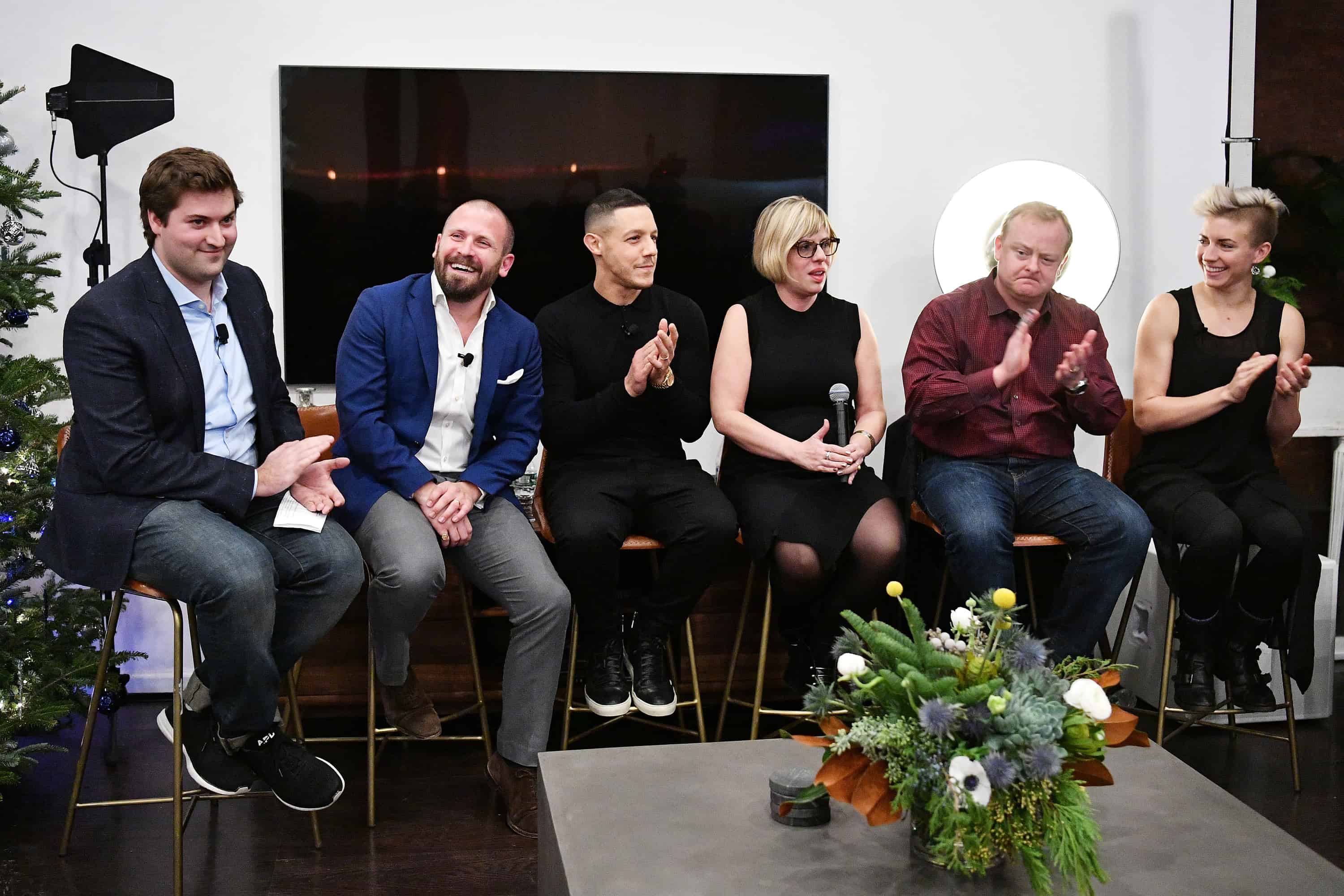2.5K





Samsung celebrated their 2nd anniversary of Gear VR in a Tribeca loft at an exclusive event co-sponsored by Forbes.
The event was a part cocktail party, part VR experience (of course), and the main event was a panel discussion featuring thought leaders in the VR space featuring:
- Theo Rossi (actor, producer, and philanthropist)
- Rachel Weiss (L’Oréal)
- Wren Dougherty (Airbnb)
- Andy Mathis (Oculus)
- Tom Harding (Samsung)
- Alex Konrad (Forbes) Moderator


The panel covered a wide range of topics in the realm of virtual reality from panelist’s views on the relevance of VR, to the fact the technology is still in its infancy, to what the “killer use case” might be that pushes VR to the mainstream.
“VR is for sports, porn, and games” is what Rachel Weiss (L’Oreal) says she was told when she first expressed interest in the technology. And she says that in the last 2 years, she’s seen the usefulness and popularity of the experience take off. The headsets have gotten less clunky and the visuals keep improving. In fact, L’Oreal is using VR to transform the cosmetic shopping experience by allowing shoppers to preview certain looks without actually applying the products. Since VR is an immersive audio/visual experience, film and television are a natural use case. Theo Rossi (Luke Cage, Sons of Anarchy) predicts that the on-demand nature of VR, along with consumer preferences to not be tied to a content schedule will disrupt the film industry. He mentioned that it’s already happening as projects that he’s working on are being filmed in VR. Andy Mathis of Occulus, which Facebook acquired in 2014 for $2 billion, says he made a convert out of his son by showing him the VR content tied to the animated film Coco. After seeing the movie in theaters, his son remarked “dad, I was there!”. Similarly, Airbnb is also using both virtual reality and augmented reality by attempting to solve for the natural uneasy feeling we all have when going somewhere new. As Wren Dougherty put it, with VR, Airbnb hopes to ” bring you the understanding of the place you’re traveling and reduce the uncertainty of where you’re going”.
As for the killer use case, some great theories were thrown around, however, the panelists ultimately agreed on two main uses, education and events. Virtual reality has the ability to transform the way people learn by allowing them to apply theories in real time. Think about virtual renderings of the human heart and how much better that is than a photo in a textbook. As it applies to live events (sports, concerts, etc.), if you couldn’t get tickets or can’t travel to watch your favorite team or artist, but could view it in VR, you can still feel like you’re there in person.
Overall, VR is still a new concept that while it is widely available for consumers, is still in somewhat of a beta phase. The technology will need to convince the masses that it’s accessible, immersive while not being isolating, and overall useful. Samsung is ahead of the game with their innovation in the space over the past 2 years and keeps watching how they evolve the space over the next few years.



